I make use of the .timestamp() function twice in my code, to convert datetime objects into epoch time. The first call to .timestamp() looks like this:
import datetime
origin_epoch = origin.timestamp()
the contents of the variables origin and origin_epoch are:
Meanwhile, if I try to call the same method elsewhere in my code
import datetime
print(datetime.datetime(1900, 1, 1, 19, 6, 28).timestamp())
Then I get the following error: OSError: [Errno 22] Invalid argument Why is this?
edit: this error occurred on Windows 10.
